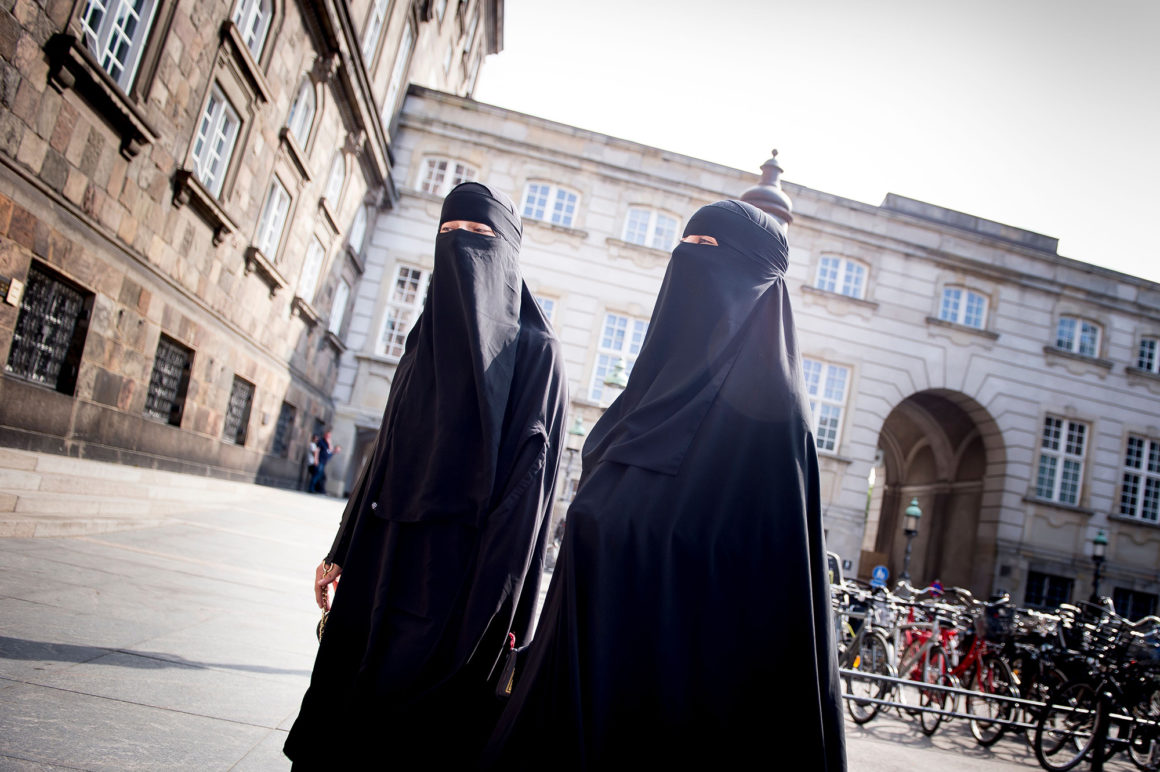

Former robber Yazid Kherfi travels in a camper van across France, hoping to spread the concept of non-violence among youth in disadvantaged suburbs.
It was a day of celebration in the market square of Tarterêts, a city classified as a high security zone located in the Corbeil-Essonnes district, in the southern suburbs of Paris.
Built in haste in the 1960s, the district used to be home to as many as 30 15-story towers, some now demolished.
Today, it is one of many French suburbs that suffer from high unemployment rates, daily insecurity and criminal acts, creating a great deal of tension between residents and the police.Built in haste in the 1960s, the district used to be home to as many as 30 15-story towers, some now demolished.
Yazid Kherfi, head shaved, arrived at his motor home in the square at around 7 pm and quietly starting setting up folding tables and chairs, board games and mint tea — enough for a friendly gathering with young people at an hour when they are usually roaming the streets. “Youth Houses are often closed in the evenings. If we don’t come, others will — fundamentalists, thugs, dealers, the internet,” he said.
In the back of his camper van was a bumper sticker for Kherfi’s association, Médiation Nomade, along with a picture of Martin Luther King and one of his quotes: “We must learn to live together as brothers or perish together as fools.” The previous week, the motor home had made its way through Carcassonne, in the south of France, and three days before that through Lucé, in the Chartres suburbs (Eure-et-Loir), home to one of the radical Islamists behind the Charlie Hebdo terror attack in 2015.
Cautious but curious, young people gradually started approaching the site — led by the youngest and most easily influenced. A child played a board game with one of the community leaders while a group of teenagers sat down with Kherfi and started asking questions: “How much did you make in your biggest heist?” “Have you ever killed anyone?” Calmly, Kherfi replied, “Violence always ends in prison. I didn’t earn anything from it. I spent five years in prison and five more on the run. I lost my best friend [killed during his last robbery], and made my mother cry for 20 years.”
Yet it is precisely his life as a former thief which fascinates these young people, eager for thrills, who dream of becoming billionaires. Some proudly boast about their first misdemeanors. “But since I fascinate them and have the same background, I have real legitimacy in their eyes, and they respect me,” Kherfi said.
The older ones watched the event from afar, approaching cautiously, one after another, and greeting the city’s mediators. These included Eric Breton, deputy mayor in charge of city policy, who has been a school principal for 18 years and knows all the youth in the neighborhood, as well as representatives of local associations. Once the party started, and the dancing began, Kherfi turned to them. “Next week, I’m going to the Montconseil district. Do you want to come?” he asked. “No way! If we go, it’s to kill them all!” replied one of the neighborhood’s kingpins. The following week, in Montconseil, Kherfi received the same answer. The two rival gangs still struggle to overcome the tensions that took the life of 19-year-old Adel, victim of a stray bullet in Place de Montconseil in 2016.
Kherfi regrets his criminal past, but the experience allows him to relate to youth in troubled suburbs, and give them hope for the future. “As a teenager, I was constantly called a useless loser and scum — which I ended up becoming,” he recalled. Now he defines himself as “a non-violent warrior” and believes that anyone, even those who hit rock bottom, can change. His own life is an example of that.
Born in the underprivileged Val Fourré district of Mantes-la-Jolie, in the western suburbs of Paris, the Franco-Algerian started stealing cars and committing burglaries and armed robberies at age 15. In all, he spent four years in prison, and five years on the run. Finally free at age 31, he turned his life around. “I had always been told that I was hopeless,” he recalled, “Then, for the first time, someone told me that I was smart. That was the trigger.”
He started working at a youth center in the Yvelines region, west of Paris, which he later directed; he graduated with honors in educational science, and specialized in security. Appointed to the French National Council of Cities from 2003 to 2005, he also became a member of the Regional Economic and Social Council. Aside from his work with Médiation Nomade (organizing 300 events since 2012), Kherfi now works as an urban prevention consultant and trains educators and police officers in conflict management. He has published two books on the subject.
His actions are bearing fruit. Recently, the city of Avignon, in the south of France, has pushed its closing hours for youth centers back to 11 p.m. In Saint-Fons (near Lyon) and Clichy-sous-Bois (near Paris), the tension has fallen between young people and police. Kherfi’s experience has attracted the attention of authorities in Mayotte and the U.S. —particularly in Chicago — and eight French cities have adopted his model, including Corbeil-Essonnes, Valence and Saint-Denis. At the request of France’s prison administration, he has also organized conference-debates in 48 prisons, for 650 prisoners in all.
“I constantly go back and forth between the world of daytime and that of night, between police and offenders,” Kherfi said. “The balance may seem risky, but nothing makes me happier.” The 61-year-old former robber hopes to devote more time to reintegrating former prisoners into society, but first he’s looking for a suitable successor to carry out Médiation Nomade’s work. It is not easy to find.
No comments:
Post a Comment